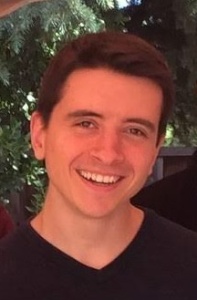Lemeshko Group
Theoretical Atomic, Molecular, and Optical Physics
“The whole is greater than the sum of its parts.” Aristotle’s saying also holds true in many systems studied in quantum physics. Mikhail Lemeshko investigates how macroscopic quantum phenomena emerge in ensembles of atoms and molecules.
Most polyatomic systems in physics, chemistry, and biology are strongly correlated: their complex behavior cannot be deduced from the properties of their individual components. Despite considerable effort, understanding strongly correlated, many-body systems still present a formidable challenge. For instance, given a single atom of a certain kind, it is hard to predict whether the resulting bulk material will be solid, gaseous, or liquid, crystalline or amorphous, magnetic or non-magnetic, conductive or insulating. The Lemeshko group studies how many-particle quantum phenomena emerge in ensembles of atoms and molecules, and in so doing, answers questions such as: How many particles are sufficient for a given property to emerge? How does an external environment modify the properties of quantum systems? Their theoretical efforts aim to explain experiments on cold molecules and ultra-cold quantum gases, as well as predict novel, previously unobserved phenomena.
Team
Current Projects
Understanding angular momentum properties of quantum many-particle systems | Studying open quantum systems and understanding how dissipation acts at the microscopic scale | Many-body physics of ultra-cold quantum gases | Developing techniques to manipulate atoms, molecules, and interactions between them with electromagnetic fields
Publications
Koutentakis G, Mistakidis SI, Grusdt F, Sadeghpour HR, Schmelcher P. 2025. Competition of light-and phonon-dressing in microwave-dressed Bose polarons. Scipost Physics. 19(4), 093. View
Juraschek DM, Geilhufe RM, Zhu H, Basini M, Baum P, Baydin A, Chaudhary S, Fechner M, Flebus B, Grissonnanche G, Kirilyuk AI, Lemeshko M, Maehrlein SF, Mignolet M, Murakami S, Niu Q, Nowak U, Romao CP, Rostami H, Satoh T, Spaldin NA, Ueda H, Zhang L. 2025. Chiral phonons. Nature Physics. 21, 1532–1540. View
Lorenc D, Volosniev A, Zhumekenov AA, Lee S, Ibáñez M, Bakr OM, Lemeshko M, Alpichshev Z. 2025. Observation of analogue dynamic Schwinger effect and non-perturbative light sensing in lead halide perovskites. ACS Photonics. 12(9), 5220–5230. View
Al Hyder R, Colussi VE, Čufar M, Brand J, Recati A, Bruun GM. 2025. Lattice Bose polarons at strong coupling and quantum criticality. Scipost Physics. 19(1), 002. View
Becker A, Koutentakis G, Schmelcher P. 2025. Dynamical probe of the pseudo Jahn-Teller effect in one-dimensional confined fermions. Physical Review Research. 7(3), 033088. View
ReX-Link: Mikhail Lemeshko
Career
Since 2019 Professor, Institute of Science and Technology Austria (ISTA)
2014 – 2019 Assistant Professor, Institute of Science and Technology Austria (ISTA)
2011 – 2014 ITAMP Postdoctoral Fellow, Harvard University, Cambridge, USA
2011 PhD, Fritz Haber Institute of the Max Planck Society, Berlin, Germany
Selected Distinctions
2018 ERC Starting Grant
2017 Ludwig Boltzmann Prize, Austrian Physical Society
2012 One of four finalists, worldwide Thesis Prize competition, AMO division of the American Physical Society
2011 ITAMP Postdoctoral Fellowship















